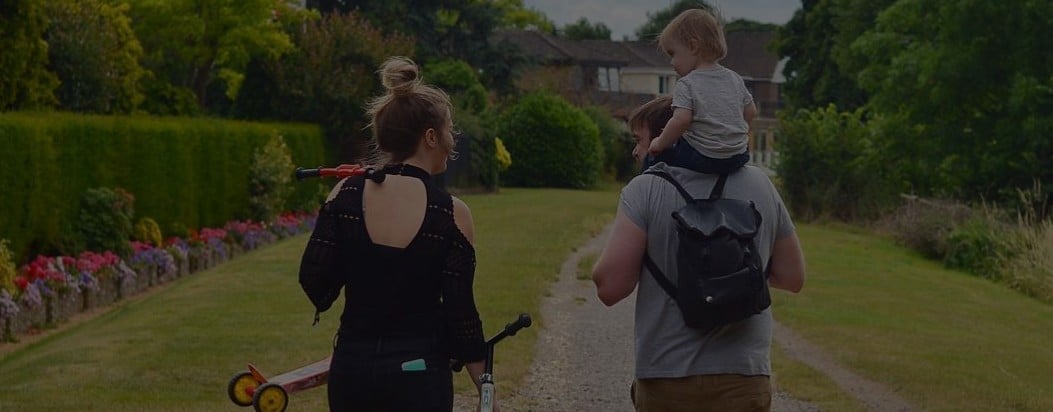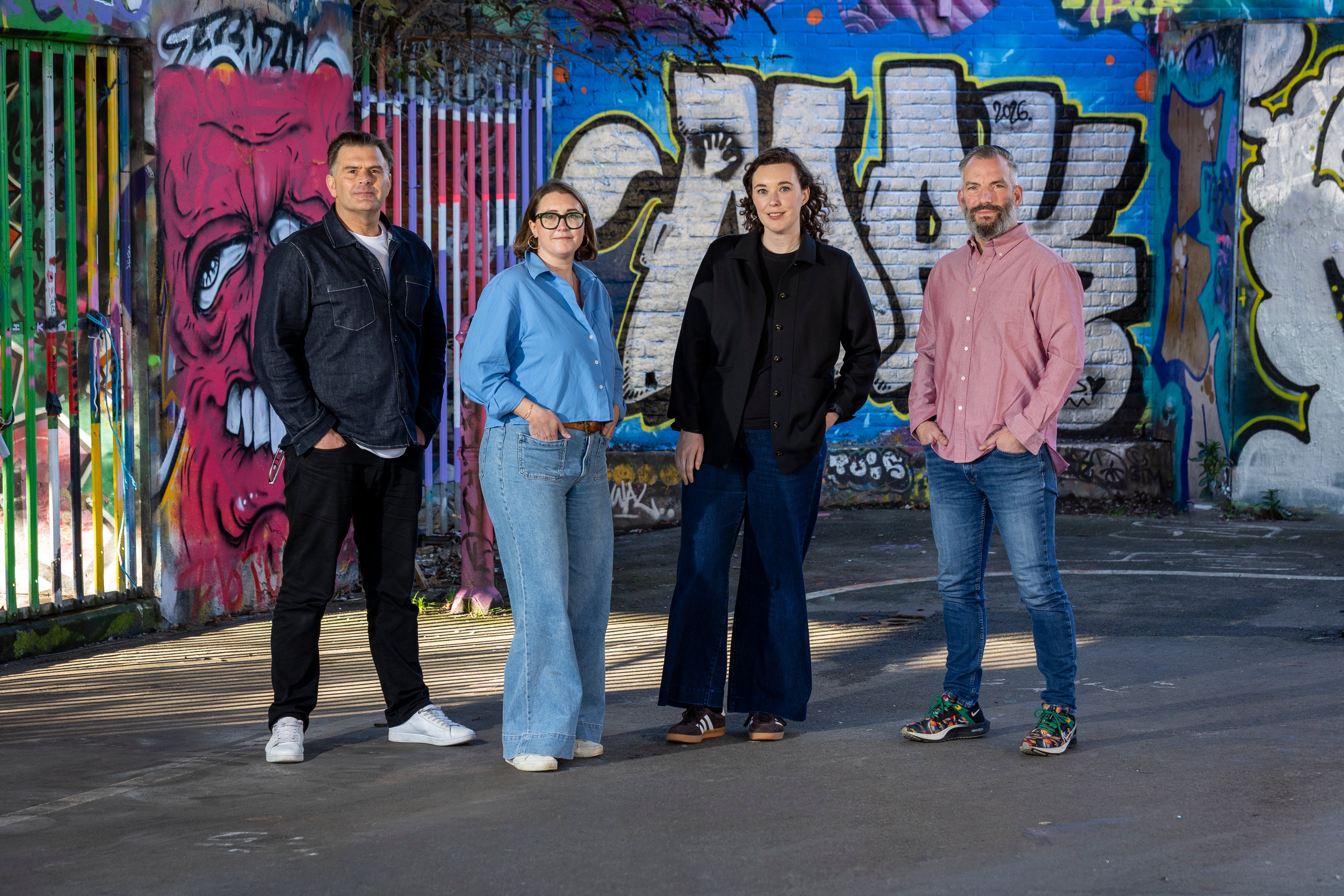Meagan Bickerstaff is Head of Growth at History Hit -Little Dot Studios’ streaming and podcast network, dedicated to all things history. As part of our International Women’s Day campaign, Meagan explores the roles women play as mothers and at work, and how organisations can work to #BreakTheBias.
My role as “woman” and “mother” has been unconventional.
I still remember the terrified look on my mother’s face when I walked on stage to accept my 2nd grade blue honour roll award in a big white t-shirt that fell down to my knees, baggy long skater shorts, and a backwards Giants hat. A tomboy at heart, I struggled to understand why my friends loved wearing flowery dresses and playing tea parties. You could usually find me climbing a very tall tree.
I was stubborn in my offbeat ways and still, to this day, hate the colour pink. As I reached my adult years I continued to express this “non-traditional” portrayal of a woman. I never longed for a family and stated on many occasions I would never get married – but if I did, my husband would take my last name.
And then, all of a sudden like a wrecking ball crashing over a lit up stage, life happened. There I was, holding a tiny 7lb alien creature in my arms.
Motherhood caught me by surprise, and to be honest, it broke me – emotionally and physically. I felt like I couldn’t keep up with everyone else even though I worked so hard to be successful in my career and at home. The balance was bitter and blurry, and I started to hate my “new self” – feeling inconvenient to my co-workers and guilt-ridden by my family.
I was trying so hard to be the person I was before that I could barely see the new person standing in front of me.
And then all of a sudden, postnatal depression struck me in the face like Babe Ruth hitting a home run, proud to have birthed a beautiful baby boy yet frightened that I could never live up to the person I was before I had him. My journey into motherhood was more than a rollercoaster.
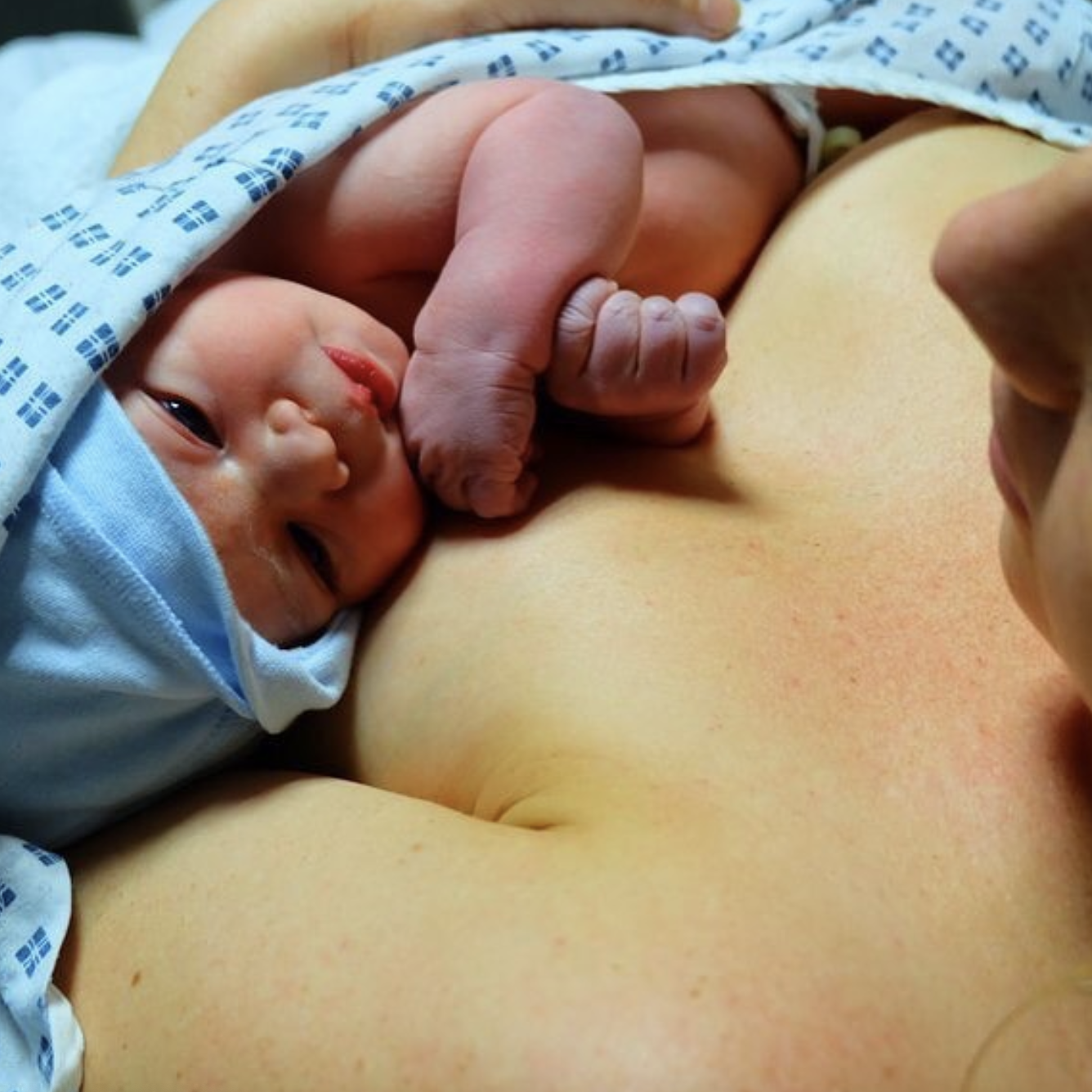
In an attempt to find myself again, and while working my way up the ladder, I also built Happy New Mum, a digital community and mentor programme where mums could speak openly about mental health and work/life balance.
I became more determined and passionate than ever before, and while I endured a few bumps along the way, I gained a heart of gold. I’m now more concerned with what makes me me rather than what makes other people like me.
Today I can finally stand tall and say I am proud to be a woman, and a mother.
I am so thankful for the achievements of the smart, strong women and men who have fought for us over the last 100 years. Thanks to the fire in their bellies, a woman’s role in society today has changed for the better.
But there is still more we can do to help. Like my story, there are many others who find it difficult to return back to work after the dramatic transition into motherhood. Fewer than one-in-five of all new mothers, and 29 per cent of first-time mothers, return to full-time work in the first three years after maternity leave. This falls to 15 per cent after five years. (UnderstandSociety.ac.uk)
A successful return to work requires a strong support system at work and at home, flexible, collaborative and understanding managers and co-workers, and if you’re lucky, breast-pumping facilities on-site.
But through the stories of close friends in the US and the UK, and my own experience of course, I have gathered we are miles away from this utopia.
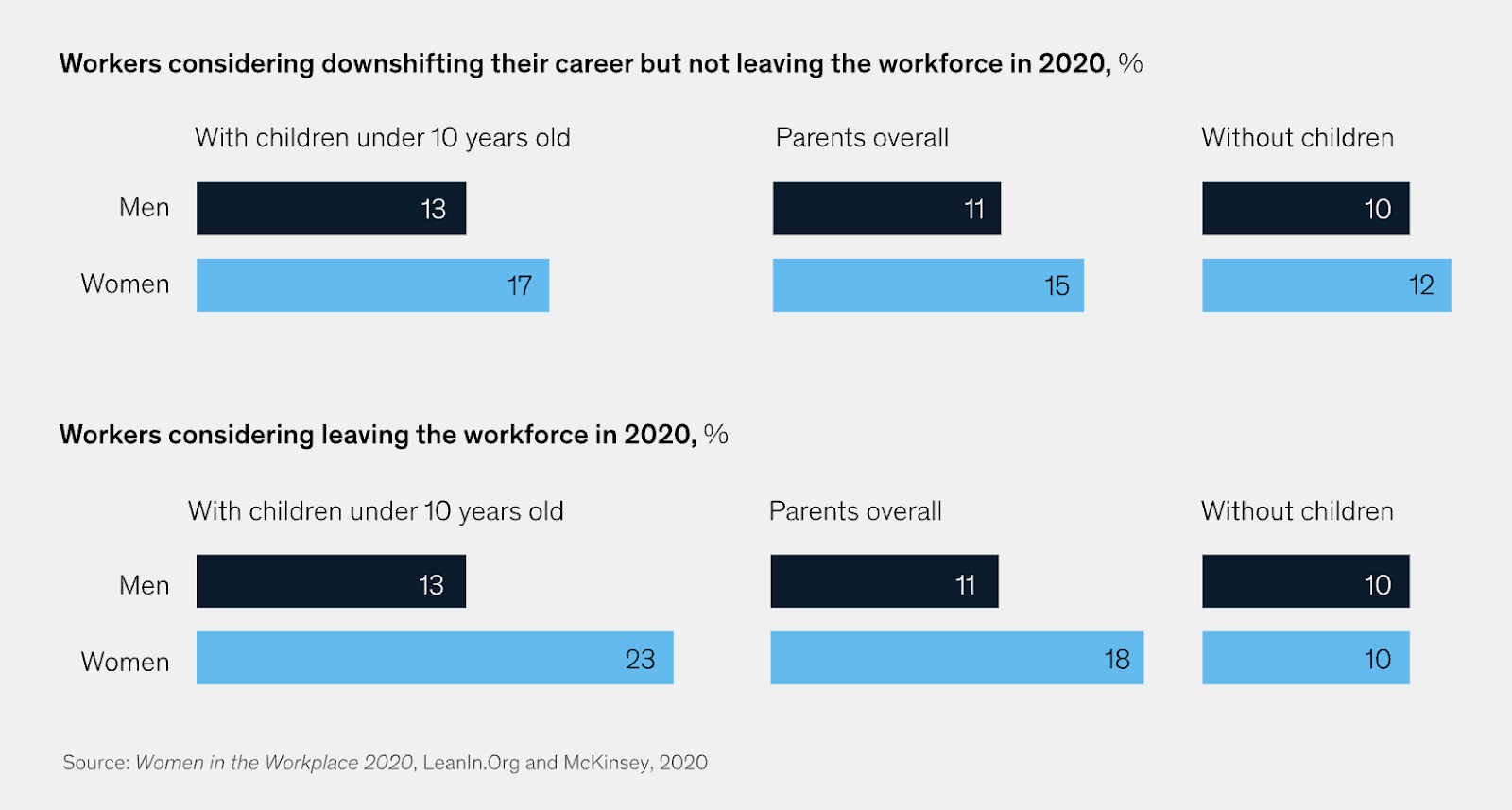
This highlights the real problem, due to a lack of care and support from businesses we are losing skilled, ambitious and knowledgeable women which is perhaps why there are only 34% of women in senior roles in the UK, especially women of colour (Source: Grant Thornton UK). Not to mention, post-covid the numbers have become even worse. The pandemic had a near-immediate effect on women’s employment. One in four women are considering leaving the workforce or downshifting their careers versus one in five men (Source: McKinsey & Company).
We need to champion a more open, flexible, honest and supportive culture to break the bias and allow women to progress in their careers. We are stunting the growth of not only women, but also the business.
Researchers at UC Davis, California found that companies with the highest percentage of women execs and board members had a 74% higher return on assets than the overall group of companies surveyed. It just makes plain business sense, more women at the top equals more revenue for the business. But I’m not going to sit here safely behind my laptop screen and blame big businesses. I know the problem also starts with us.
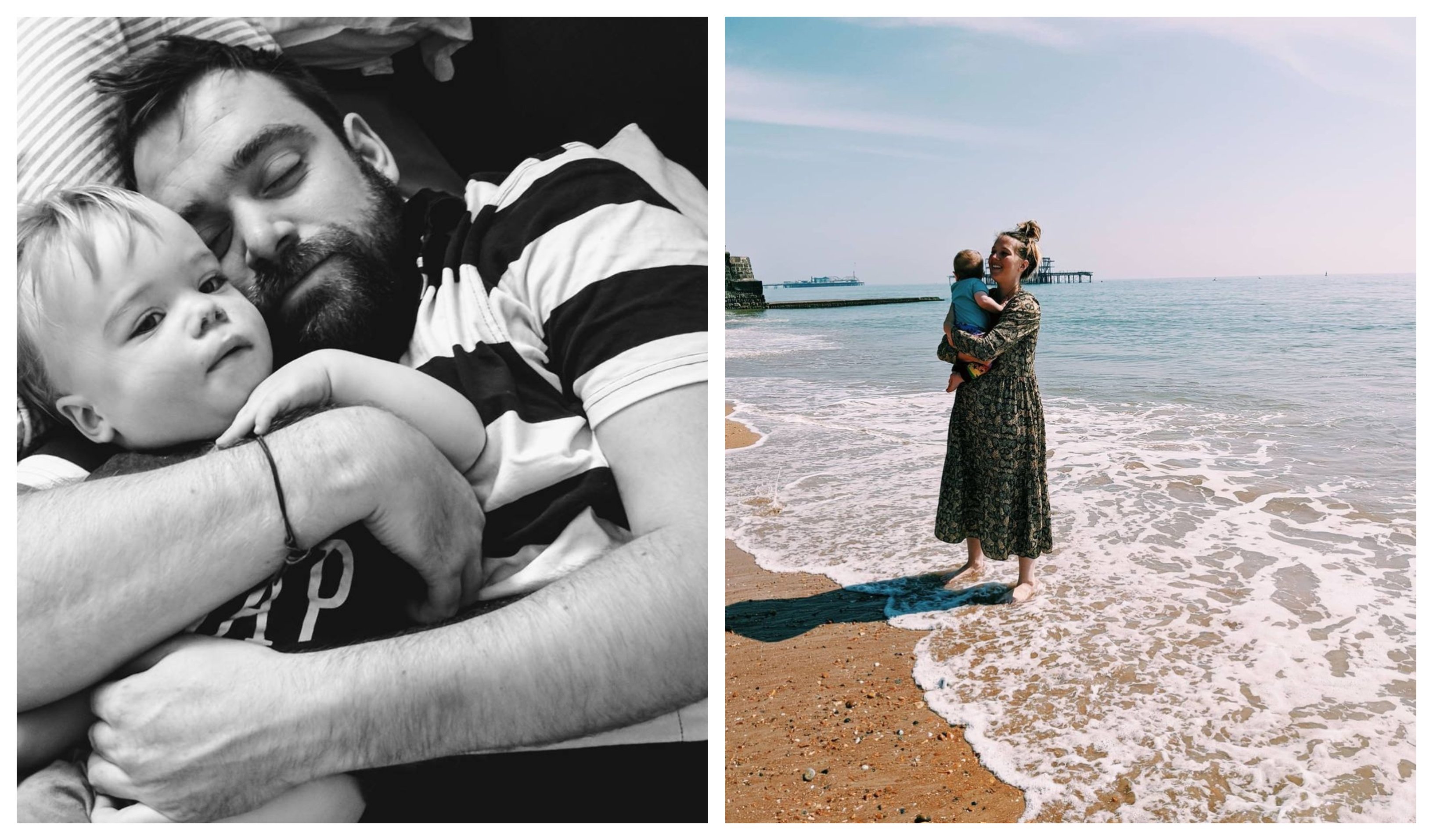
In my own home, when I started making a little more than my partner, I could feel an air of insecurity start to lurk like the smog creeping over the Golden Gate Bridge. Societal expectations got the better of us.
So, while today is most certainly about women, we also need to break the biases about men. The role they play in society, the workplace, and at home is equally as important. Men need to be seen in the workplace as fathers just as much as mothers are.
The ultimate utopia would be to get to a place where all men feel comfortable with the idea that they could be a Stay-at-Home-Dad and where all women can confidently walk into work with a breast-pump in one hand and a workbook in the other without one person batting an eye-lid.
While I am truly grateful for the women who have put their lives on the line to get to where we are today, I hope that soon we will finally live in a world that no longer has biases against women or men.
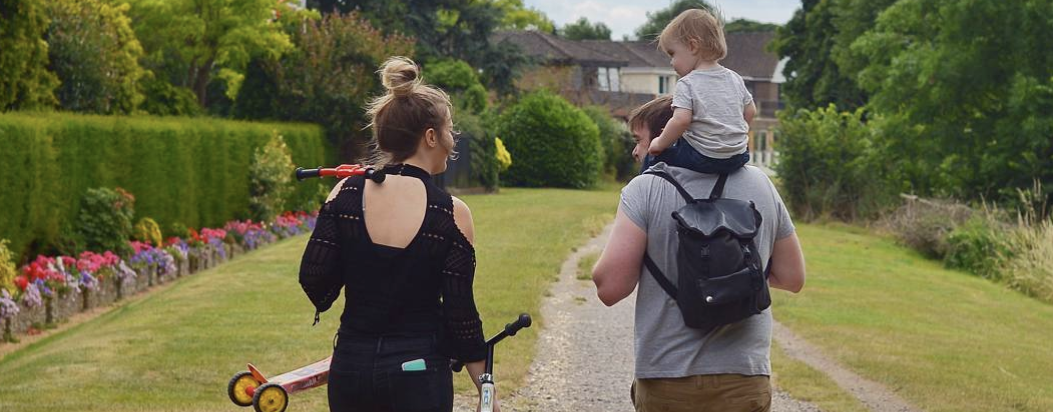
Meagan is a member of Bloom and on the leadership for the last two years, a professional network for women in communications that works to champion women in all stages of their careers. She also managed an online community of around 1K mothers who wrote about the truth about parenting, and started a cross-mentoring programme to support mothers who needed help pre, during and post pregnancy.
This article was originally published in 2019.
At Little Dot Studios we are proud of our diverse and progressive workplace culture, and are always looking for ways to improve and educate ourselves on important issues that affect employees quality of life. This article is just one of multiple things we are doing this year to raise awareness for International Women’s Day. To read more about our approach to DEI, visit our policies page here.

